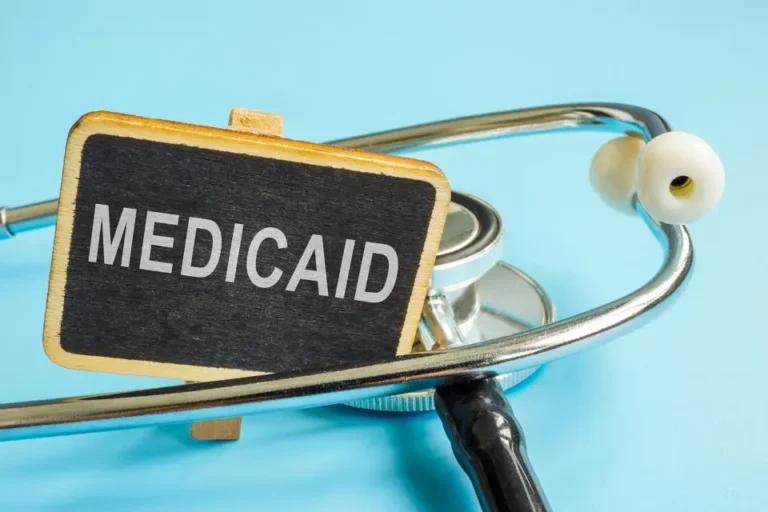A controversial new bill backed by President Donald Trump, called the One Big Beautiful Bill Act, has cleared the Congressional House and is now under Senate review. While it includes a range of domestic policy changes, its most sweeping and potentially devastating impact is on Medicaid, the federal-state partnership health insurance program for low-income and disabled Americans.
Medicaid programs are comprehensive government-funded federal-state health insurance initiatives that provide coverage for low-income and disabled Americans, offering essential healthcare services and long-term care.

Image showing Trump signing the One Big Beautiful Bill Act that will affect medicaid benefits.
Key Takeaways
- Bill is estimated to leave 9 million people without health insurance by 2034
- Bill is estimated to leave 14 million people without health insurance by 2034, if the Affordable Care Act (ACA) subsidies are not extended
- Millions of existing Medicaid recipients are required to meet stringent new tests to remain eligible
- States will need to expand capacity to ensure stringent eligibility tests are undertaken every 6 months
- Copays of up to $35
What is the One Big Beautiful Bill Act?
The One Big Beautiful Bill Act may not be a familiar name in the world of Medicaid or health insurance, but its significance lies in how it could reshape the landscape of health coverage for millions of Americans. Comprehensive healthcare legislation like this has the power to impact programs such as Medicaid and the Children’s Health Insurance Program (CHIP), which are lifelines for low-income children, families, seniors, and people with disabilities. These programs are designed to provide health coverage and essential services to those who need them most, helping to improve health outcomes, reduce costs, and ensure that vulnerable populations have access to the care they deserve. As lawmakers debate the future of these programs, understanding the potential effects of sweeping legislation is crucial for anyone who relies on Medicaid, CHIP, or other health insurance programs for their health and well-being.
What is Medicaid?
Medicaid is a vital government program that offers health insurance coverage to adults, children, and families with limited income and resources. Funded jointly by federal and state governments, Medicaid eligibility is determined by factors such as income, age, disability status, and family size. The program covers a wide range of health services, including doctor visits, hospital care, prescription medications, and more, ensuring that low-income individuals and families can access the healthcare they need. Medicaid plays a crucial role in providing health insurance to those who might otherwise go without, helping to bridge gaps in health care coverage and improve overall health outcomes for some of the nation’s most vulnerable populations.
Medicaid and CHIP: What’s the Difference?
While both Medicaid and the Children’s Health Insurance Program (CHIP) are designed to provide health coverage to low-income families, there are important differences between the two. Medicaid offers health insurance coverage to a broad group, including adults, children, pregnant women, seniors, and people with disabilities. In contrast, CHIP is specifically focused on providing health insurance coverage to low-income children and teens up to age 19 who do not qualify for Medicaid but still need affordable health care. Both programs are often managed together by state agencies, and understanding the distinction is essential for healthcare providers and families alike. By knowing which program applies, providers can help ensure that patients, especially children, receive the right health coverage and access to necessary care.
How Managed Care Organizations Fit In
Managed Care Organizations (MCOs) are a key part of how Medicaid and CHIP services are delivered today. These organizations contract with state Medicaid agencies to provide a range of health care services to enrollees, working closely with healthcare providers to coordinate care and manage costs. MCOs help improve health outcomes by ensuring that patients receive timely, coordinated, and high-quality care, often including benefits like dental and vision coverage in addition to standard medical services. By partnering with MCOs, Medicaid and CHIP programs can better control costs while still providing comprehensive health coverage to those who need it most, making managed care an essential component of the modern healthcare system.
Key Medicaid Changes in the Bill
The bill proposes some of the most significant cuts to Medicaid since the program’s expansion under the Affordable Care Act (ACA) in 2014. According to the Congressional Budget Office (CBO), these changes would leave nearly 9 million people without health insurance by 2034. That number could rise to 14 million if enhanced ACA subsidies, set to expire soon, are not extended.
Among the most critical changes:
- Work Requirements: Millions of Medicaid recipients, especially childless adults added through ACA expansion, would be required to prove they are working or meet specific exemptions to remain eligible.
- Frequent Eligibility Checks: Beneficiaries would need to confirm their eligibility every six months, doubling the administrative burden currently required in most states.
- Copayment Mandates: States would be required to impose copays of up to $35 for some specialist visits on enrollees with incomes just above the federal poverty line, dramatically higher than typical Medicaid copays, which are usually less than $10. Some individuals may not be able to afford these payments, and Medicaid sometimes waives costs for those who cannot afford them.
These measures are framed by Republicans as attempts to eliminate “waste, fraud, and abuse” in the system. But health policy experts argue the changes will disproportionately harm low-income and working-class Americans.
Projected Impact
Experts warn that these provisions could result in a dramatic loss of coverage, not because people are ineligible, but because they are unable to meet new administrative demands.
Individuals who are already enrolled in Medicaid may lose their enrollment status if they cannot keep up with new requirements. States like Oregon, which currently allow continuous eligibility to avoid lapses in care, would be forced to increase red tape, putting vulnerable residents at risk. The new administrative requirements also make obtaining health insurance coverage through Medicaid more challenging for those in need.
More frequent paperwork checks will invariably lead to eligible people losing care. Research consistently shows that most adult Medicaid enrollees under 65 already work, and that new documentation requirements tend to disenroll those who fall through the cracks, not those abusing the system.
One analysis by health consulting firm Manatt Health estimates that 7 million of the 21 million people added to Medicaid under ACA expansion could lose their coverage under the bill’s provisions.
With the end of continuous eligibility, states are increasing paperwork and administrative hurdles. The process of enrollment will become more complicated, and the new bill would disrupt normal enrollment procedures, making it harder for eligible individuals to maintain or regain coverage.
A Shift in Strategy from 2017
Unlike the 2017 Republican repeal effort, which aimed to eliminate the ACA entirely and would have left 32 million uninsured, this bill uses more targeted language. GOP leaders now avoid calling it an “Obamacare repeal”, a label that proved politically costly in the past. But critics say the intent is the same.
The Medicaid changes would also help offset the cost of approximately $4 trillion in tax cuts, many of which favor wealthier Americans.
A Warning About the Future of Medicaid
The long-term effects of these changes could be far-reaching. Increased cost-sharing has been linked to reduced access to care among low-income people. Paperwork barriers tend to push out the very individuals the program is meant to protect, such as those with unstable housing, part-time jobs, or limited internet access.
Medicaid programs cover payments for a wide range of healthcare services, and changes to these payments could affect access to care for millions of Americans.
The core mission of the Medicaid program is to help vulnerable populations cover their healthcare costs, which they otherwise would not be able to afford. Therefore, it is safe to assume that the bill could inadvertently leave millions without a vital lifeline.
Medical Disclaimer
NowPatient has taken all reasonable steps to ensure that all material is factually accurate, complete, and current. However, the knowledge and experience of a qualified healthcare professional should always be sought after instead of using the information on this page. Before taking any drug, you should always speak to your doctor or another qualified healthcare provider.
The information provided here about medications is subject to change and is not meant to include all uses, precautions, warnings, directions, drug interactions, allergic reactions, or negative effects. The absence of warnings or other information for a particular medication does not imply that the medication or medication combination is appropriate for all patients or for all possible purposes.










